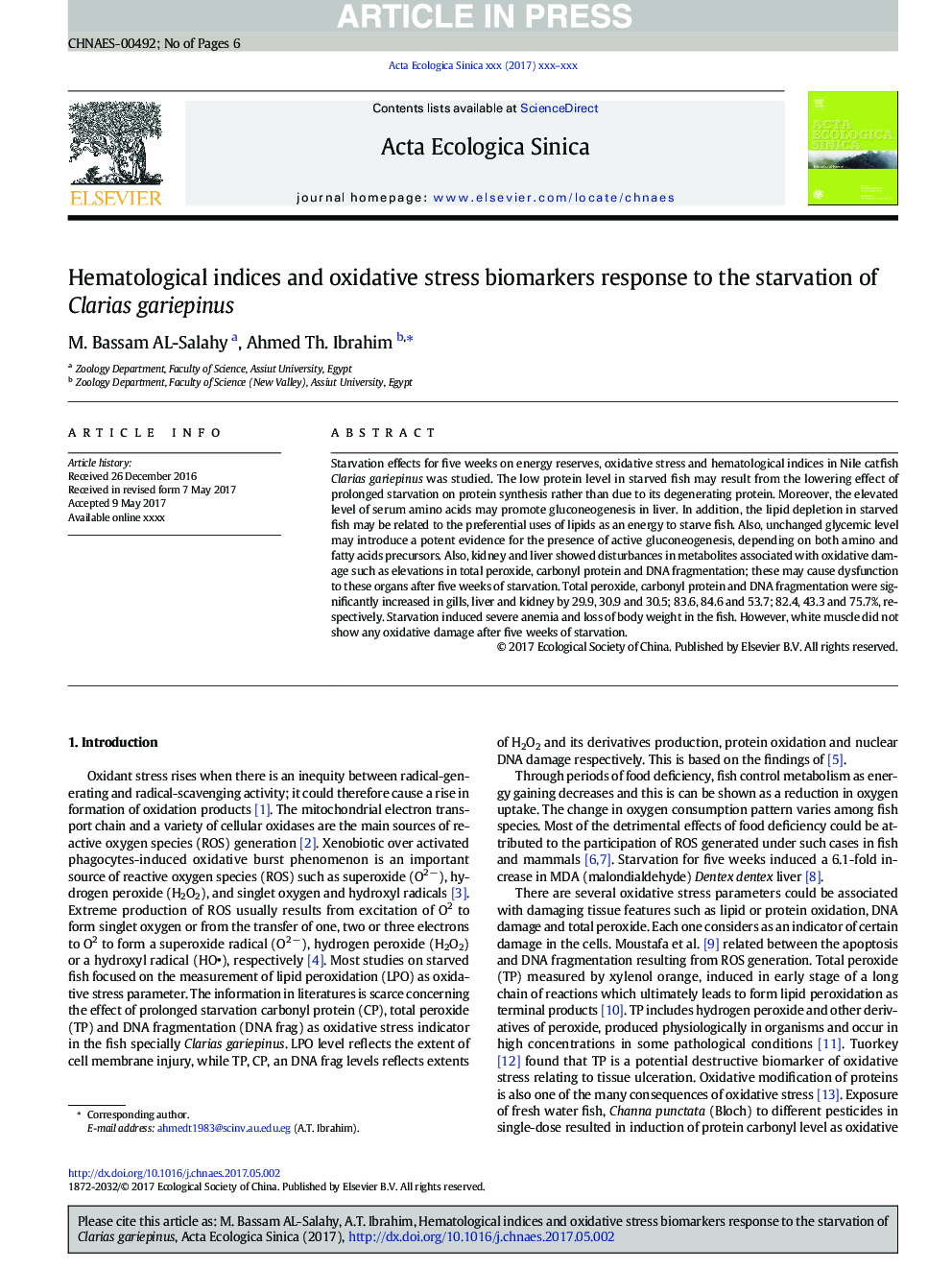| Article ID | Journal | Published Year | Pages | File Type |
|---|---|---|---|---|
| 8846303 | Acta Ecologica Sinica | 2018 | 6 Pages |
Abstract
Starvation effects for five weeks on energy reserves, oxidative stress and hematological indices in Nile catfish Clarias gariepinus was studied. The low protein level in starved fish may result from the lowering effect of prolonged starvation on protein synthesis rather than due to its degenerating protein. Moreover, the elevated level of serum amino acids may promote gluconeogenesis in liver. In addition, the lipid depletion in starved fish may be related to the preferential uses of lipids as an energy to starve fish. Also, unchanged glycemic level may introduce a potent evidence for the presence of active gluconeogenesis, depending on both amino and fatty acids precursors. Also, kidney and liver showed disturbances in metabolites associated with oxidative damage such as elevations in total peroxide, carbonyl protein and DNA fragmentation; these may cause dysfunction to these organs after five weeks of starvation. Total peroxide, carbonyl protein and DNA fragmentation were significantly increased in gills, liver and kidney by 29.9, 30.9 and 30.5; 83.6, 84.6 and 53.7; 82.4, 43.3 and 75.7%, respectively. Starvation induced severe anemia and loss of body weight in the fish. However, white muscle did not show any oxidative damage after five weeks of starvation.
Related Topics
Life Sciences
Agricultural and Biological Sciences
Ecology, Evolution, Behavior and Systematics
Authors
M. Bassam AL-Salahy, Ahmed Th. Ibrahim,
